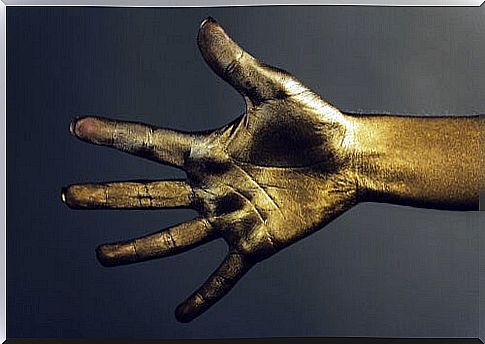King Midas, A Golden Myth

At the end of the second millennium BC, the Hittite Empire collapsed in the Anatolian peninsula, following the attacks of the enigmatic Peoples of the Sea. The power vacuum is exploited by different groups, including the Phrygians, from the Balkans. The Phrygian Kingdom will bequeath to the Ancient World part of its culture and its legends, some of which have survived to this day. From expressions such as “Gordian knot”, referring to problems that require creative solutions, going through the classic Phrygian cap, erroneously symbol of republicanism, to its most famous king: Midas.
The reign of the mythical King Midas must have been approximately in the 8th century BC. C. and was the culmination of the Phrygian power. During this time, Anatolia established strong and frequent relations with the Greek world. It will be through the Greek stories, or from the interpretations that the Romans made of them, that we will learn about the history of this people.

A timeless legend
It will be precisely the Roman poet Ovid who brings us the definitive version of the myth. According to his lyrics, Midas would have been a monarch who managed to capture the genius Silenus. He lived free in a Macedonian garden, but he could not escape the cunning of Midas, who substituted wine for the water in the fountain where Silenus drank. Already intoxicated, he was able to capture it without difficulty, and it was then that he understood its nature. He decided then to give it to Dionisio, who, delighted to recover it, decided to give Midas the gift he wanted.
At first, the ability to transform objects fascinated him. He began to turn all kinds of objects into gold metal, first the poorest and then the very elements of his palace. Still joyful, he metamorphosed ears of cereal, fruits into even the water that ran off his hands. But as is well known, the gift contained a ruse; thus, when he needed to eat or drink his own food, they did not resist his contact. In Ovid’s story, Dionisio accepts the humility discovered by the king and reveals his fateful talent in a bath in the Pactolo river.
Who is Midas?
Perhaps the story has endured to this day because of its effectiveness in denouncing greed. Far from being an unreal fantasy, Midas’s story is that of those who value wealth more than human needs. The teaching it transmits is none other than one of the first expositions of the sentence repeated a thousand times “money does not bring happiness” in the same way that gold does not satisfy the soul. After all, gold is not eaten.
Beyond the myth, Midas king
The story is obviously legendary, but ties to the character can be traced. Of all the kings of Phrygia, Midas was the most powerful, and also the richest. Both their homelands and the establishment of the Phrygians at the time were rich in gold deposits. In the eyes of its Greek neighbors it must have been a splendid kingdom.
But the success of Midas had nothing to do with the intervention of Dionisio. The complex balance of power in the Middle East and Asia Minor was seen by the ruler as a possibility for promotion.
We know that he intrigued against Sargon, the Assyrian king, and for this he collaborated with Armenia. He also sought to expand into Cilicia and support popular uprisings in Cappadocia. All this did not prevent, in its moment of greatest power, ignoring allies like Urartu in pursuit of the protection of ancient enemies like Assyria. It was political intelligence, and not gold, the great key to its success.

The death of Midas
Perhaps fearful of the gods, perhaps eager to demonstrate his power, his lavish offerings to the sanctuary at Delphi were narrated to us by Herodotus. Contrary to some versions of his fable, Midas did not starve or turn himself to gold. At one point, crisis and invasions reached his kingdom and the Assyrians denied him their protection. Thus, before being assassinated, the king decided to ingest a deadly poison.
His kingdom would still outlive him for several decades until it disappeared as an independent entity. His tomb would still await the arrival of Alexander the Great, who would cut the Gordian knot impossible to untie that tied his funeral car. A sign that he would be the conqueror of Asia.









